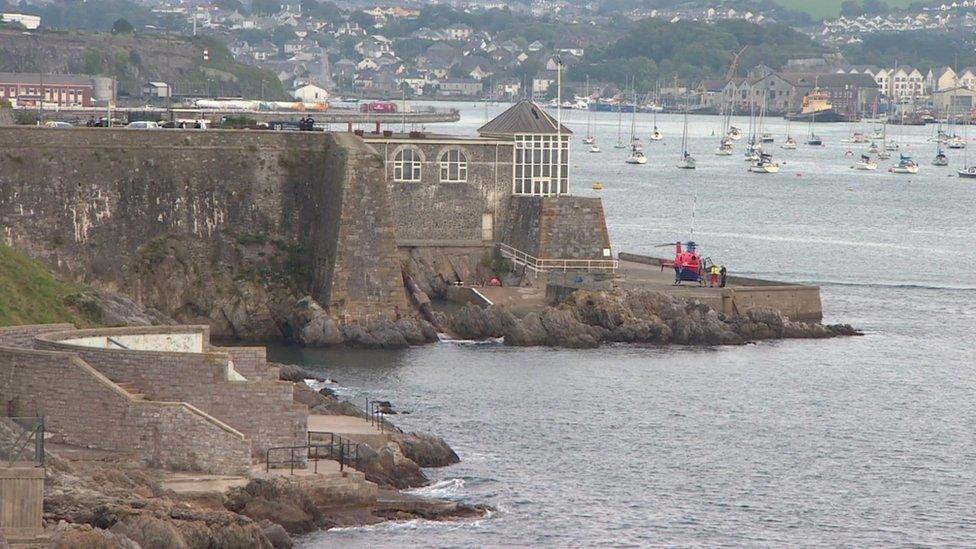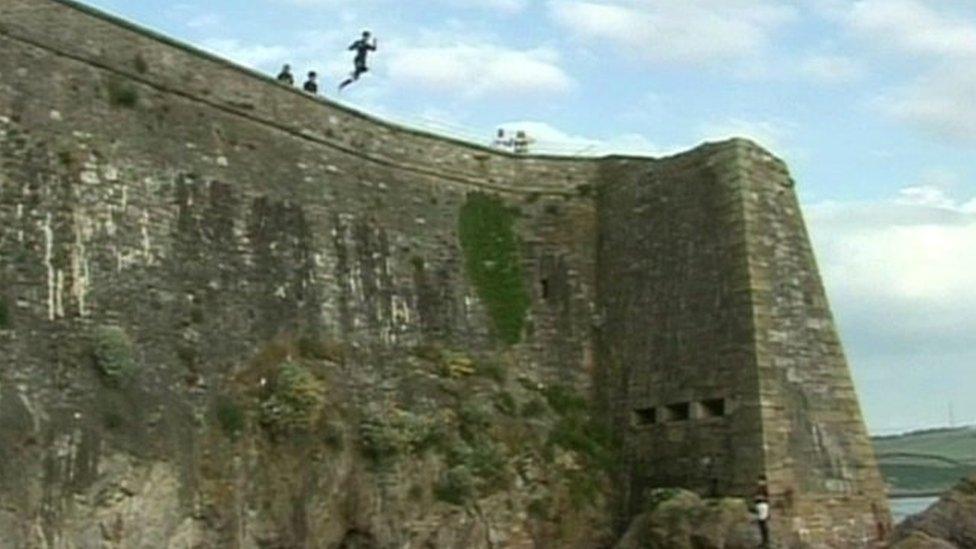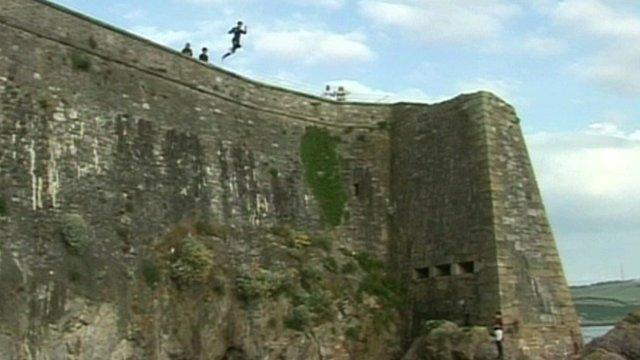Man dies after 'tombstoning' off Plymouth Hoe cliff
- Published

The man's body was taken by air ambulance to hospital
A 39-year-old man has died after "tombstoning" off cliffs on the Plymouth coast.
His body was found in the water on the seafront near the Citadel on Thursday afternoon, police said.
The area around Plymouth Hoe is popular for tombstoning, where thrill-seekers leap from high places into open water.
A police spokesperson said the death was not being treated as suspicious and the man's next of kin have been informed.

The area around Plymouth Hoe is popular for tombstoners, people who leap off high structures into water
Assistant Chief Constable Paul Netherton of Devon and Cornwall Police tweeted that he was "really saddened" and "we lose too many people being washed off cliffs as it is".
The coastguard's latest figures show that tombstoning has led to an average of two deaths a year over the past 10 years.


Why tombstoning is dangerous
Water depth alters with the tide; the water may be shallower than it seems
Submerged objects like rocks may not be visible. They can cause serious injury if you jump onto them
The shock of cold water may make it difficult to swim
Strong currents can rapidly sweep people away
Source: Maritime and Coastguard Agency

Between 2005 and 2015 coastguards dealt with more than 200 incidents of tombstoning, with 83 injuries and 20 deaths.
An 11-year-old boy died in July after reportedly tombstoning from a bridge into a canal in Rotherham.
Cornwall Council issued a warning, external after receiving reports of young people in Bude, St Ives, Newquay and Portreath leaping from road bridges, locks and closed-off piers after drinking alcohol.
Simon Blackburn, from the Local Government Association, said: "The message is clear - if you don't know that the depth of the water is safe or you cannot see what is below the surface, don't jump."
- Published25 July 2016

- Published30 July 2015
